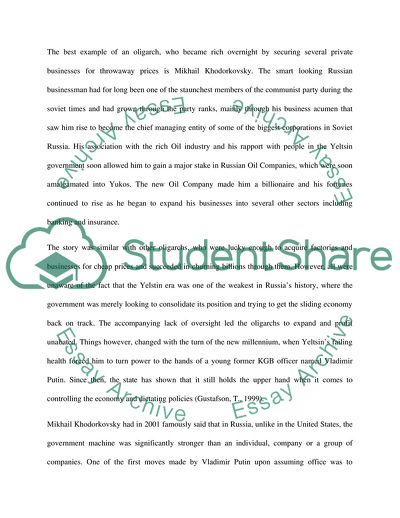Cite this document
(Relationship between Russian Oligarchy and the Kremlin Article, n.d.)
Relationship between Russian Oligarchy and the Kremlin Article. https://studentshare.org/politics/1721782-what-is-the-nature-of-the-relationship-between-russian-oligarchy-and-political-power-the-kremlin
Relationship between Russian Oligarchy and the Kremlin Article. https://studentshare.org/politics/1721782-what-is-the-nature-of-the-relationship-between-russian-oligarchy-and-political-power-the-kremlin
(Relationship Between Russian Oligarchy and the Kremlin Article)
Relationship Between Russian Oligarchy and the Kremlin Article. https://studentshare.org/politics/1721782-what-is-the-nature-of-the-relationship-between-russian-oligarchy-and-political-power-the-kremlin.
Relationship Between Russian Oligarchy and the Kremlin Article. https://studentshare.org/politics/1721782-what-is-the-nature-of-the-relationship-between-russian-oligarchy-and-political-power-the-kremlin.
“Relationship Between Russian Oligarchy and the Kremlin Article”. https://studentshare.org/politics/1721782-what-is-the-nature-of-the-relationship-between-russian-oligarchy-and-political-power-the-kremlin.


